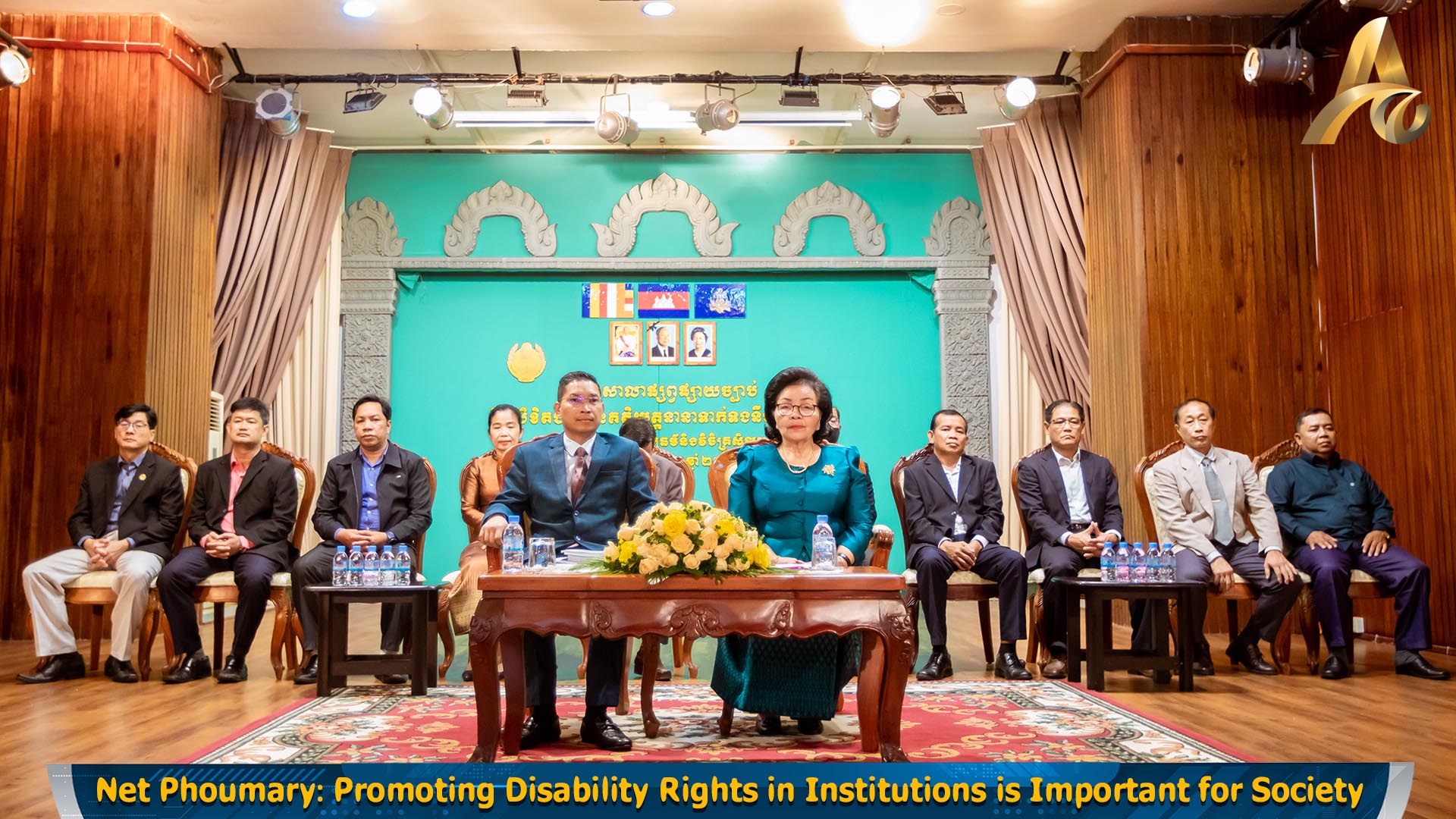PHNOM PENH: The Secretary of State of the Ministry of Culture and Fine Arts has stated that participation in promoting the rights of persons with disabilities within the Department of Education under the Ministry of Culture and Fine Arts is very important for Cambodian society.
Speaking at a seminar on disseminating laws and regulations related to disability at the Ministry of Culture on Wednesday morning, 23 November, Secretary of State Net Phoumary said that persons with disabilities who work in the cultural sector have the opportunity to receive vocational education, which helps to strengthen the capacity of human resources who generate wisdom to promote national cultural values and protect national identity on a higher level within both national and international frameworks.
The Secretary of State of the Ministry of Culture added that persons with disabilities can participate in investing in cultural products and services to better integrate Cambodia into the world economy, and benefit national cultural products through the creation of works of art, whether visual, musical, technological, or more.
At the same time, participating in the implementation of the National Disability Strategic Plan 2019-2023 issued by the Royal Government will also help alleviate the social burden faced by persons with disabilities, increasing living standards and reducing poverty through the creation of jobs, strengthening the rule of law and striving for an educated society without discrimination.
"Opening up opportunities for persons with disabilities to participate in cultural life is to turn a new page in their history," said Secretary of State Net Phoumary.
"To allow access to professional skills, careers or businesses, or to give them opportunities to develop from needing sponsors, to becoming the developers of technology or new creations, with the copyright and related creative rights over film production, software, game design, innovation, fashion design, and sale of products or services in the global market, to attract economic interests and contribute to the development of society, culture, and technology."
She further emphasized that the Royal Government, under the National Strategic Plan on Disability 2019-2023, has launched vocational training and improved access to education for persons with disabilities in the field of culture and the arts at the Regional Arts School, the Secondary School of Fine Arts and the Royal University of Fine Arts.
In particular, the Secretary of State highlighted the importance of facilitating the improvement of infrastructure, means of communication, knowledge, information technology, tools, and other services for persons with disabilities in all administrative buildings of all units or departments in Ministries. This will help make infrastructure and cultural services more easily accessible for persons with disabilities, and should include provisions such as the production of documents and other works in Braille or in audio format free of charge and exclusively for the blind or deaf.
Improving conditions to allow persons with disabilities to participate more in culture, arts, sports, recreation, and other activities improves livelihoods and will also allow for the creation of new cultural and artistic works by persons with disabilities, contributing to social development and national economic income.
The Royal Government of Cambodia, under the sixth legislature of the National Assembly, has set out the fourth phase of the Rectangular Strategy, which considers the cultural and fine arts sector to play an important role in promoting national economic growth and social development, with a specific focus placed on economic diversification in the cultural sector.



































